This article has been sponsored by Canon India.
Just a couple of benches, seats and some sparsely populated classrooms made up a Haryana village school. Low rate of enrollment and lack of proper infrastructure were some of the many problems ailing the school.
But since 2018, things have begun to change in the Maheshwari village for good.
Today, over 250 students are rediscovering their school curriculum through new lenses of curiosity and interactive engagement. The vibrations of social transformation are felt across the village. All of this thanks to an e-learning module and computer class training established at the resource centre.
From pakka and clean roads lit with solar lights to a resource centre — this village has grown into a model example of rural development. This transformation is just one success story in a pool of many empowered villages, thanks to a unique initiative called ‘Adopt a Village’ by Canon India. Dedicated to bringing about social change, Canon India has been organising such initiatives for over nine years and has positively impacted 80,000 people across India.
Transforming one village at a time
Today, in Maheshwari village:
- 259 students participated in resource centre activities and enrolled in e-learning modules of teaching.
- Three batches of computer courses were conducted during the year, in which 46 community youth were enrolled.
- Six School Management Committees (SMCs) were organised for better interaction between parents and teachers.
- 653 community members benefited from a vision centre.
- Three cleaning drives were organised in which 56 people participated from the village.
- 16 kitchen gardens were established during the year.
- Tree plantation activity continued with the active involvement of 30 community people. They planted 150 saplings collectively.
Started in 2012, the ‘Adopt a Village’ initiative is part of the Canon India Involve campaign that aims to empower communities through social infrastructural development, enhanced access to technology and education.
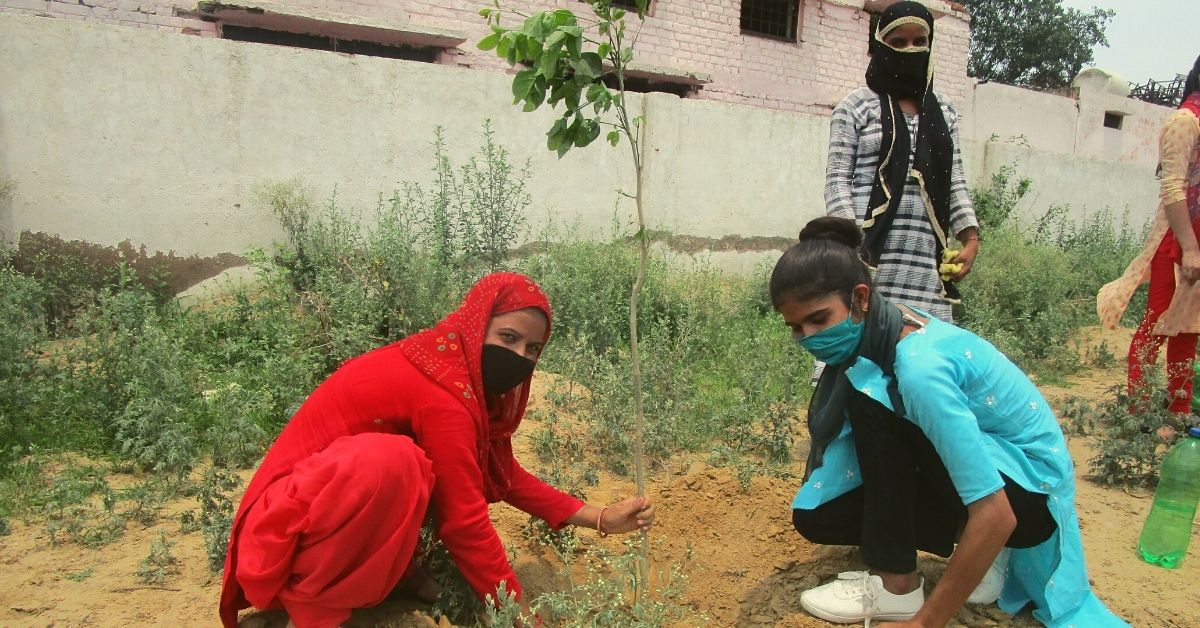
In the past nine years, Canon India has adopted and reformed six more villages, namely Ferozepur Namak in Haryana, Maharaja Katte Village in Bangalore, Sol Gohalia in Kolkata, Maheshwari in Haryana, Annadodi Village in Bangalore, Karanjoti in Mumbai and Parivali Village in Maharashtra-and has touched a total of 86,364 lives.
South India’s Maharaja Katte village is another beneficiary of Canon India’s Adopt a Village initiative. It is the second village adopted by them after Ferozepur Namak and is one of the most successful ones. From empowering the youth to become village changemakers, upskilling women with tailoring training, to upgrading the village school with digital education, they have impacted the lives of over 7,000 inhabitants in Maharaja Katte.
A positive chain of change
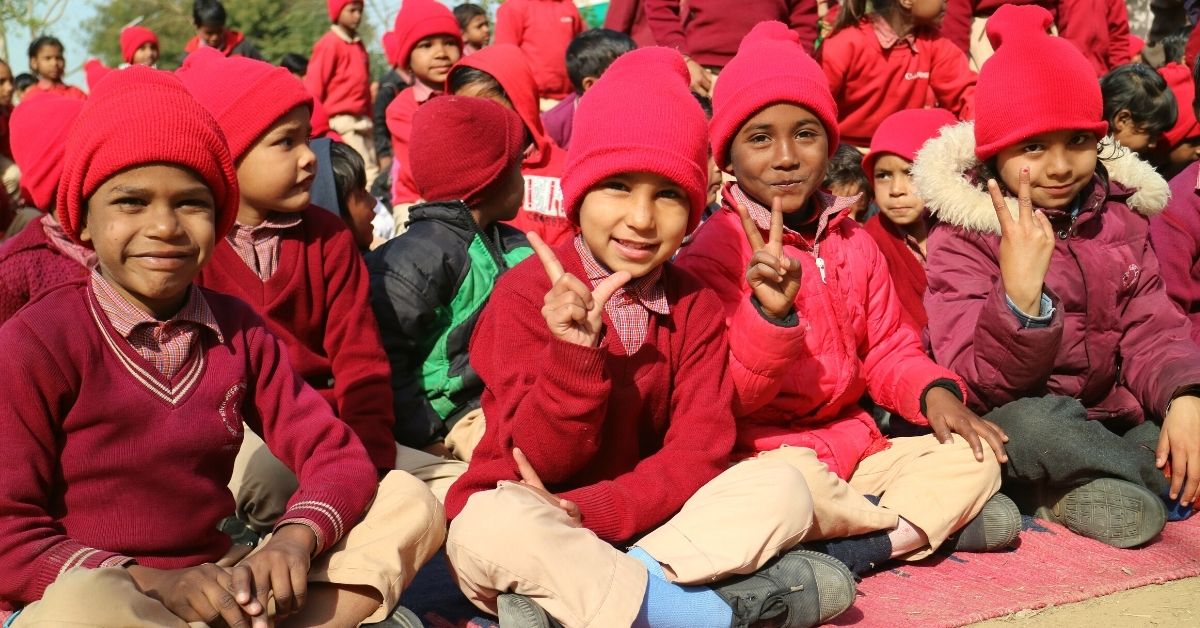
Much like the success in Maharaja Katte and many other villages, Karanjoti village’s transformation deserves a mention. Thanks to Canon India’s efforts a total of 200 students benefited from various e-learning modules and activities at the resource centre and school. Through e-learning and remedial classes, the initiative continued to help improve the quality of education in the village.
One example of this improvement is the participation of a total of 183 students in rallies, based on various issues like global warming, road safety and the coronavirus. The students were also taken for an exposure trip to Krishi Tantra Niketan Khaniwali on 7 March 2020. Through these activities, Canon India hopes to ensure that every student has the opportunity for a wholesome education that empowers them with the knowledge that can benefit them and the entire community as well. In addition to reforming education, Canon India also set up a vision centre and organised several eye camps that helped a total of 232 villagers.
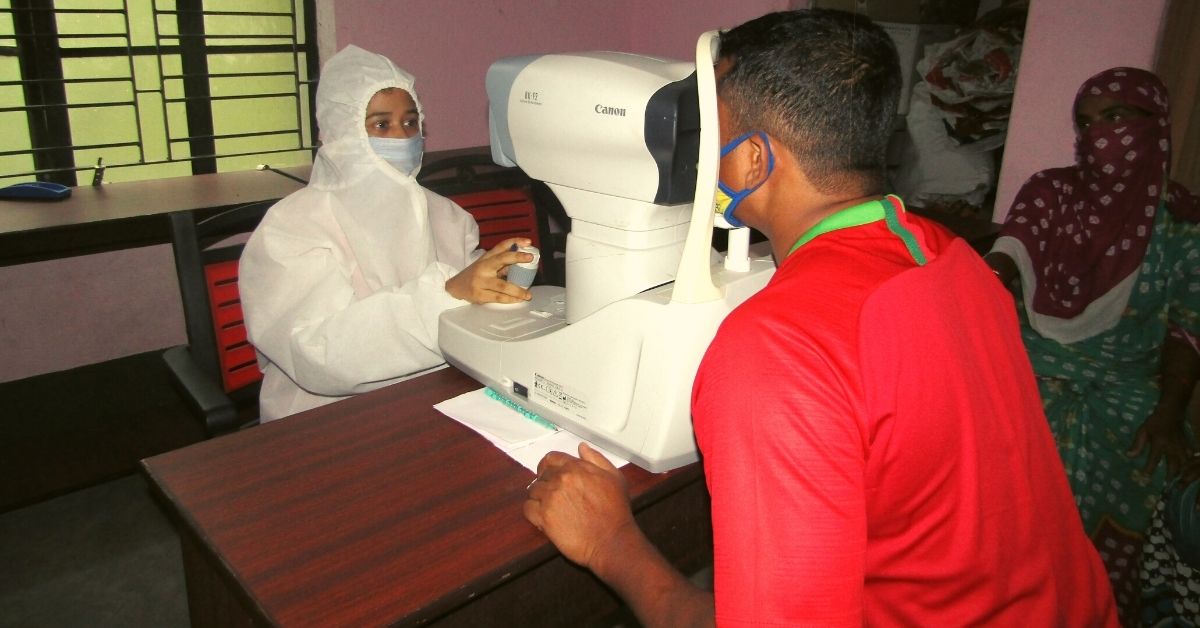
The successful feat of building a progressive and sustainable environment at Karanjoti village paved the way for the replication of this model in another nearby village called Parivali in 2021. Here too, Canon India seeks to implement several development activities under the four core areas — Education, Eye Care, Environment and Empowerment. With more than 1,000 people above the age of 60 in the village, their plans for setting up an eye care center, called the Vision Center, is one of their main focuses. At this center, Canon hopes to facilitate free of cost eye checkups for villagers and children.
The establishment of kitchen gardens, formation of common garbage pits and installation of solar panels, are some of the other initiatives that will begin under the environment segment. They also hope to tackle the problem of underemployment through various youth-centric vocational training. By working on all these segments they aim at transforming Parivali into a self-sustaining example for rural development, just like their predecessors.
Kazutada Kobayashi, the president and CEO of Canon India, says that their secret behind these accomplishments is consistency.
“Consistency and continuous support is key to achieving the transformation we hope to see in these villages. So after adopting a village, we dedicate five years to implement the changes and empower the community. After that, we assess our impact there, and if it is good, then replicate that model in other villages. We acknowledge that change is not constant, but an outcome of consistent effort,” he says in conversation with The Better India.
A helping hand during the pandemic
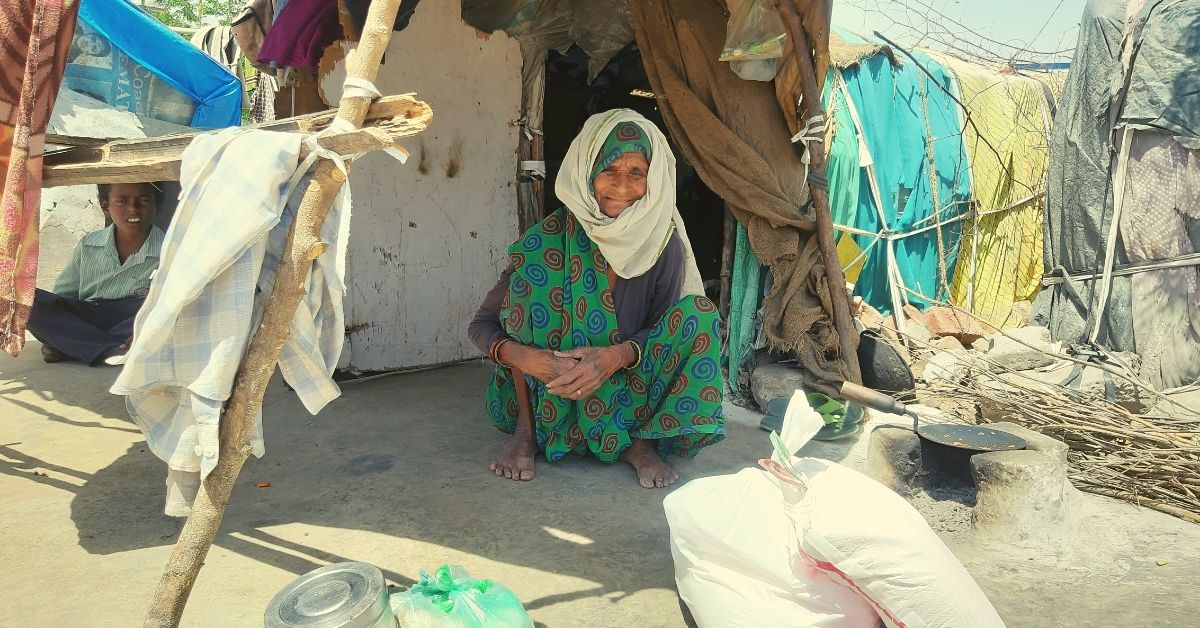
Millions of people across India experienced severe challenges during the COVID-19 pandemic. But the situation was dire, especially in rural areas and low-income communities where there was a gross lack of access to even essentials like food and sanitation items.
Canon India decided to extend a helping hand to its adopted villages with several initiatives. They organised awareness programs among community members to educate them about the dos and don’ts of COVID-19 and deployed hand sanitisers and soaps in resource centres, vision centres and vocational centres. They helped over 12,000 people survive by distributing 3,000 dry food packets.
“COVID-19 prevented us from visiting the villages and orphanages, but it was important to reiterate that they are a part of the Canon India family. So we made arrangements to reach them virtually and assisted them in every possible way. We actively worked with them to combat the effects of the pandemic,” says Kobayashi.
Canon India also extended help to SOS Children’s Village in Faridabad and Hyderabad by distributing sanitisers, liquid soap, cotton masks and other home cleaning products. Owing to their assistance, almost 500 children and caregivers residing in these villages could continue their fight against the pandemic.
Driving impact beyond charity
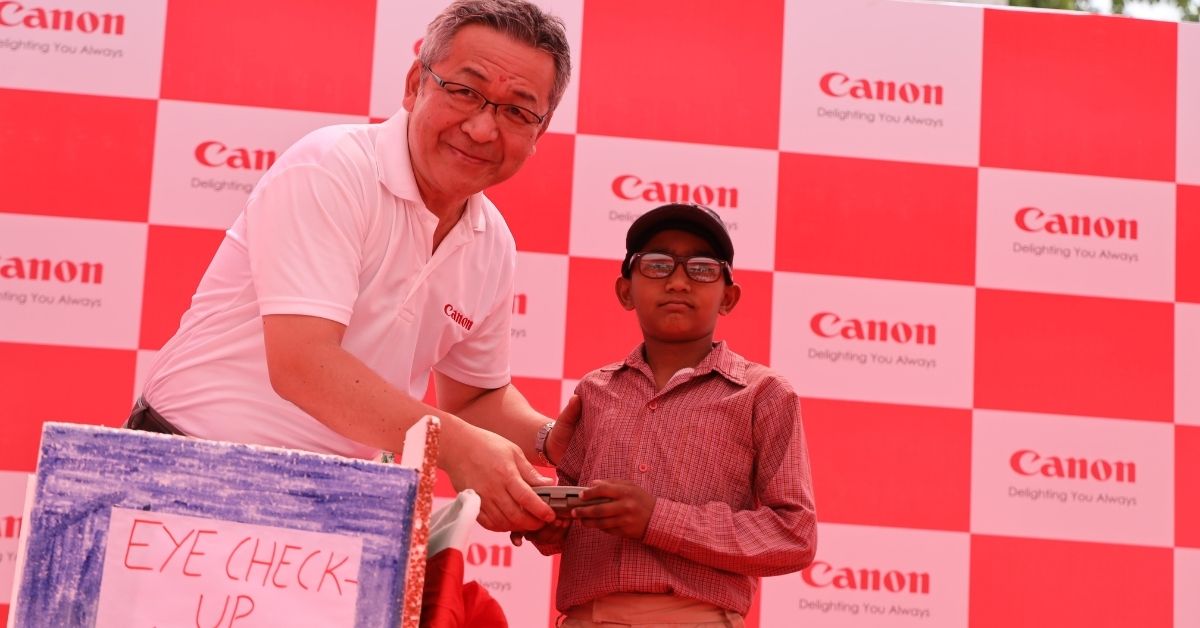
Kobayashi emphasises that at Canon India, the social impact work goes beyond the conventional discourse of charity.
“For us, CSR is not just a matter of donating funds to certain activities outside but also a more internalised practice, where not just the employees but also their families are actively involved.”
The transformation of Maheshwari village is an example of employee and family involvement in CSR activities. With the help of a special fundraising walkathon called Canon India Involve Impact League, it’s employees and their families raised Rs. 2.9 million by covering 113,000 kilometres in 45 days. This money was then invested in initiating several developmental changes in the village.
Beyond the numbers, Kobayashi adds that impact is not always measured quantitatively. It is sometimes about the lives you change along the way. He says, “I will never forget the sparkle in the eyes of the children and an old lady when I was visiting our first adopted village (Ferozepur Namak) back in 2012. The sea of emotions I could see in my audience made me forget about the prepared speech. This is what motivates us.”
No comments:
Post a Comment